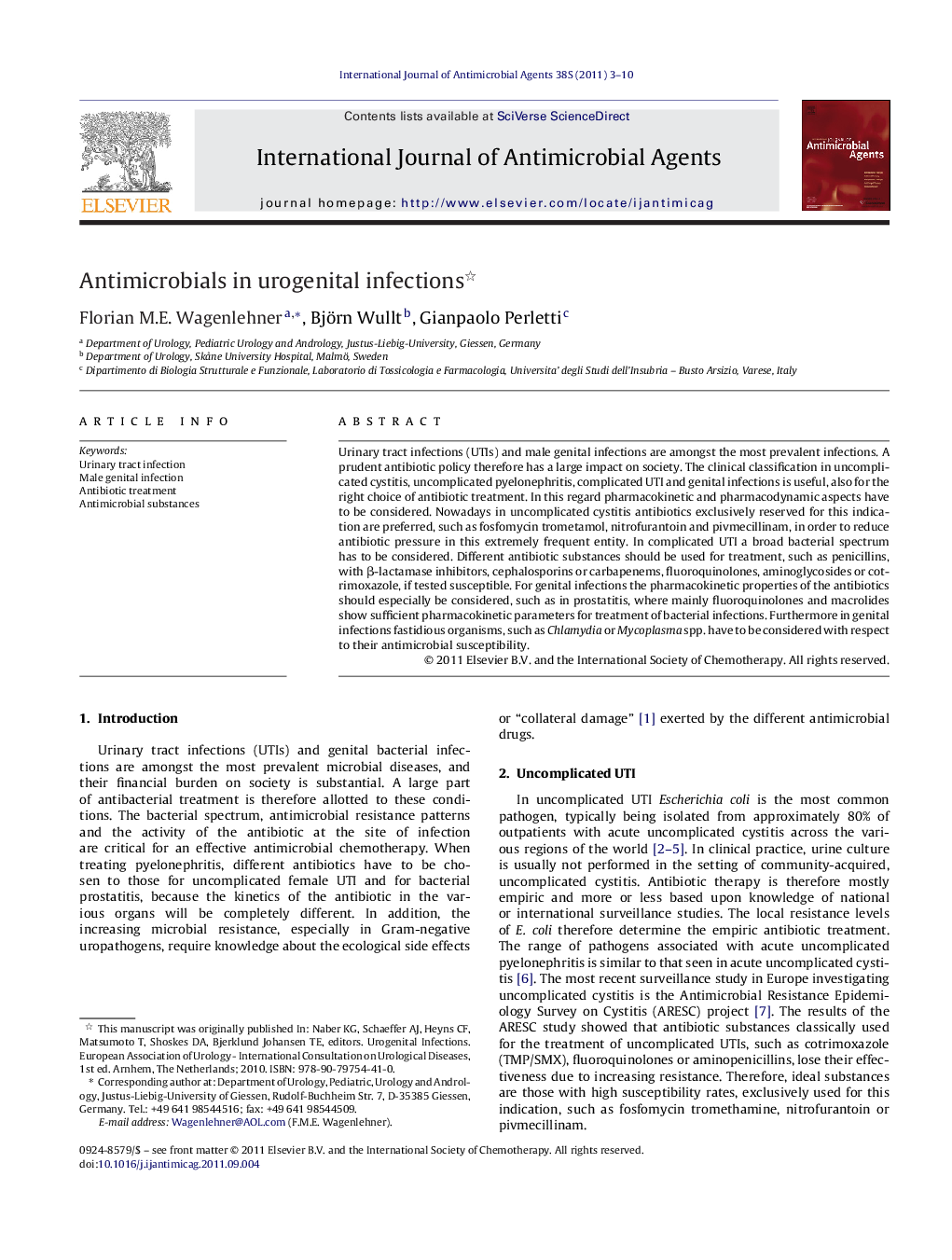| Article ID | Journal | Published Year | Pages | File Type |
|---|---|---|---|---|
| 3359537 | International Journal of Antimicrobial Agents | 2011 | 8 Pages |
Urinary tract infections (UTIs) and male genital infections are amongst the most prevalent infections. A prudent antibiotic policy therefore has a large impact on society. The clinical classification in uncomplicated cystitis, uncomplicated pyelonephritis, complicated UTI and genital infections is useful, also for the right choice of antibiotic treatment. In this regard pharmacokinetic and pharmacodynamic aspects have to be considered. Nowadays in uncomplicated cystitis antibiotics exclusively reserved for this indication are preferred, such as fosfomycin trometamol, nitrofurantoin and pivmecillinam, in order to reduce antibiotic pressure in this extremely frequent entity. In complicated UTI a broad bacterial spectrum has to be considered. Different antibiotic substances should be used for treatment, such as penicillins, with β-lactamase inhibitors, cephalosporins or carbapenems, fluoroquinolones, aminoglycosides or cotrimoxazole, if tested susceptible. For genital infections the pharmacokinetic properties of the antibiotics should especially be considered, such as in prostatitis, where mainly fluoroquinolones and macrolides show sufficient pharmacokinetic parameters for treatment of bacterial infections. Furthermore in genital infections fastidious organisms, such as Chlamydia or Mycoplasma spp. have to be considered with respect to their antimicrobial susceptibility.
